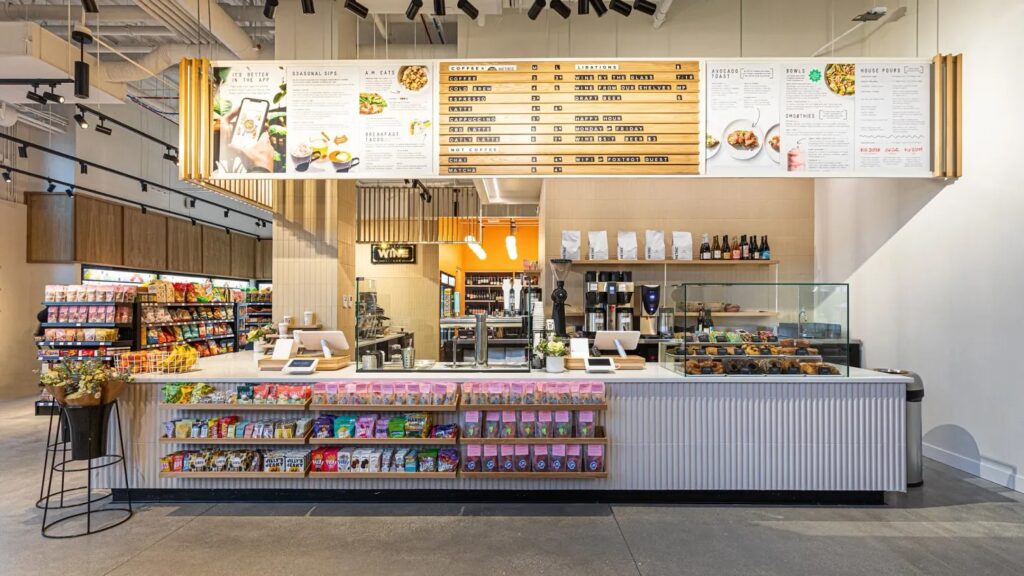
Image Credit: Snaxshot
Every week we track the business, tech and investment trends in CPG, retail, restaurants, agriculture, cooking and health, so you don’t have to. Here are some of this week’s top headlines.
Foxtrot Market, once a promising venture, has abruptly ceased operations, filing for Chapter 7 Bankruptcy. The merger with Dom’s, intended to bolster its financial standing, instead proved detrimental. Meanwhile, in Luxembourg, Moolec achieved a significant milestone, gaining USDA approval for its innovative approach to producing pork proteins from bioengineered soybeans.
In other news, we’ve wrapped the first season of our podcast in partnership with AgFunder: New Food Order, a nuanced investigation into the business of tackling our climate and social crises through food and agriculture. Read all about why we launched the podcast, and be sure to subscribe and share!
Our newsletter takes a lot of time and resources to produce. Make a one time or monthly contribution to help us keep it going. Whether it’s $5 or $500, every bit helps and shows us that you value our work.
1. Foxtrot Market Ceases Operations – Snaxshot
Foxtrot will be filing for Chapter 7 Bankruptcy. Foxtrot was dragging Dom’s down financially since its merger.
2. What Went Wrong At Foxtrot – Modern Retail
At the end of 2023, Foxtrot had projected it would do $165m in sales, but it was only on track to bring in $130m. On Tuesday, it closed all 33 of its locations without warning.
3. Luxembourg: Moolec Gains USDA Approval for Pork Proteins Grown in Soybeans – Green Queen
The company is bioengineering soybeans to produce porcine myoglobin, using the plants as the ‘bioreactors’ themselves. Moolec plans to provide food manufacturers with the ingredients for use in their product formulations.
4. Finland: Solar Foods Opens World’s First Commercial-Scale Facility for Air Protein – Green Queen
Months after closing an €8m Series B investment round to support the construction of its first commercial-scale factory, Solar Foods’ Factory 01 is now operational and will help the startup mass-produce its Solein air protein.
5. Netherlands: Meatable Hosts the EU’s First Public Tasting for Cultivated Meat at Dutch HQ – Green Queen
Meatable hosted the first public tasting event for cultivated meat in the EU, following approval from the newly formed safety assessment panel in the Netherlands.
6. UN Accused of Misusing Research to Underestimate Meat Industry Emissions in COP28 Study – Green Queen
During COP 28, the FAO released a study analyzing livestock emissions – now, experts whose data was cited by the report are accusing the body of distorting their work to understate the climate impact of this sector.
7. Vegetables Are Losing Their Nutrients. Can the Decline Be Reversed? – The Guardian
A process called biofortification puts nutrients directly into seeds and could reduce global hunger, but it’s not a magic bullet.
8. Plant-Based Food Sales Fall to $8.1B As Consumers Demand Lower Prices and Higher Quality – Food Dive
Though the space has made strides to reach more people, only 15% of U.S. households purchased its products in 2023, compared to 19% in 2022.





